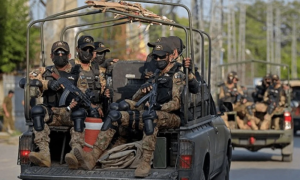ISLAMABAD: Pakistan’s Interior Minister, Sarfraz Bugti, clarified that the November 1 deadline for leaving Pakistan applies to all illegal foreigners, not just Afghan nationals.
Speaking in the Senate Standing Committee on Interior, Bugti stated that the government’s directive to expel illegal foreign residents is not limited to Afghan citizens. He mentioned that the government’s decision to repatriate illegal foreigners was wrongly perceived as if the state wanted to expel only Afghan nationals. He emphasized that the decision is not ethnically motivated and is for all undocumented foreign immigrants.
Bugti also revealed that Baloch individuals arriving from Iran are also being deported, except for those with refugee cards or visas. The government has set November 1 as the deadline to address the broader issue of illegal foreign residents in Pakistan.
The caretaker government has imposed a November 1 deadline for illegal foreign residents to leave Pakistan, aiming to address the issue of unlawful immigrants more rigorously.
Afghan Nationals Involved in Suicide Attacks in Pakistan
The decision was made during an apex committee meeting on the National Action Plan (NAP) following a deadly suicide attack in Mastung, Balochistan, in which over 60 people lost their lives. The government data shows that in the last 24 suicide bombings, 14 were carried out by Afghan nationals.
Recent terror incidents often involved Afghan nationals or their presence on Pakistani soil, as indicated by a report from the Pakistan Institute for Conflict and Security Studies (PICSS, which cited 271 militant attacks in the first half of 2023, resulting in 389 casualties and 656 injuries.
This marked a 79% increase in terror activities within the country. The United Nations (UN) has stressed that refugees in Pakistan should have the option to leave the country voluntarily, without coercion.
Pakistan has been hosting millions of Afghan refugees since the Soviet Union’s invasion in 1979, with approximately 1.33 million registered refugees holding Proof of Registration (PoR) cards and 840,000 possessing Afghan citizenship cards.


























